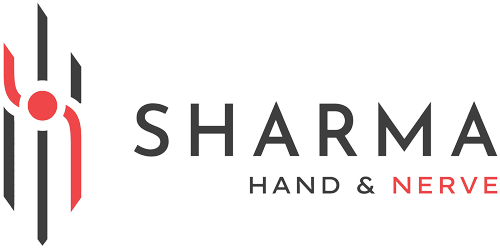If you’re living with chronic joint pain, stiffness, or tenderness that hasn’t improved with other treatments, joint denervation may offer relief. At Sharma Hand & Nerve, Dr. Ketan Sharma performs this advanced procedure to target the nerves causing your pain, helping you regain comfort, mobility, and control.
What is Joint Denervation?
Joint denervation relieves chronic joint pain by selectively interrupting the nerves that transmit pain signals from the affected joint to the brain. Unlike joint replacement or fusion, this technique preserves the joint’s natural movement while significantly reducing discomfort. Dr. Sharma uses precision techniques to pinpoint and treat the sensory nerves involved, thereby minimizing damage to surrounding tissues. This approach is effective for patients with arthritis or nerve-related joint pain who seek long-term relief without compromising mobility.

What Are the Signs and Symptoms Indicating You May Need Joint Denervation?
If you’re dealing with joint pain that hasn’t improved with physical therapy, injections, or medications, joint denervation may be the next step toward lasting relief. This procedure is often considered when nerve-related pain continues to interfere with daily activities. Common signs and symptoms that may indicate the need for joint denervation include:
- Sharp or burning pain around a specific joint
- Ongoing tenderness despite rest or medication
- Pain that worsens with movement but has no major structural damage
- Chronic discomfort following joint surgery or injury
- Limited hand or wrist function due to persistent joint pain
- Reduced quality of life from localized nerve-driven joint pain
What Does Joint Denervation Treat?
Joint denervation aims to treat chronic joint pain that persists even after conservative treatments have failed. This is especially helpful for patients whose pain is caused by nerve irritation within the joint, rather than by severe structural damage.
It can be valuable for individuals who are not yet candidates for joint replacement or who wish to avoid fusion surgery. By targeting the nerves responsible for transmitting pain, joint denervation offers relief while preserving joint mobility.
What Happens During Joint Denervation?
During joint denervation surgery, Dr. Sharma begins by making a small incision near the affected joint, commonly in the wrist, fingers, or hand. Using detailed imaging, he carefully identifies the specific sensory nerves responsible for transmitting pain signals from the joint to the brain. Once identified, Dr. Sharma uses microsurgical instruments to either cut the nerve, cauterize it with heat, or excise a segment to ensure long-term interruption of the pain pathway.
To preserve function, Dr. Sharma avoids motor nerves and surrounding healthy structures, focusing only on the pain-carrying fibers. He often performs the procedure under regional anesthesia, and the incision is closed with fine sutures. Most patients are discharged the same day with a soft dressing and post-op instructions.

What is Recovery Like After Joint Denervation?
Recovery after joint denervation is typically smooth and faster than more invasive joint surgeries. You may experience mild swelling, soreness, or numbness around the surgical site, but these side effects improve within a few days. Most patients return to light activities within a week and resume normal function within a few weeks, depending on the joint involved and the extent of the procedure. Dr. Sharma will guide your recovery with a personalized plan to maximize pain relief and protect joint mobility.
To support optimal healing, follow these aftercare guidelines:
- Keep the surgical site clean and dry
- Avoid heavy lifting or strenuous activity for the first few weeks
- Wear any prescribed splint or bandage as directed
- Take pain medications only as needed
- Elevate the limb to reduce swelling
- Attend all scheduled follow-up appointments
- Begin hand therapy if recommended by Dr. Sharma
Why Choose Dr. Sharma for Joint Denervation?
Dr. Ketan Sharma is a board-certified hand and nerve surgeon with specialized expertise in treating chronic joint pain using advanced microsurgical techniques. He is fellowship-trained and has extensive experience performing joint denervation procedures that target pain at its source while preserving joint mobility. His focus on patient outcomes and precision-driven care makes him a trusted choice for individuals seeking long-term relief.
Here’s why patients choose Dr. Sharma for joint denervation:
- Advanced training in nerve surgery and chronic pain management
- Minimally invasive techniques to reduce recovery time
- Prioritizes preservation of joint movement and function
- Clear communication and individualized treatment planning
- Achieves consistently high patient satisfaction and outcomes
Schedule a consultation today to find out if joint denervation is right for you.
